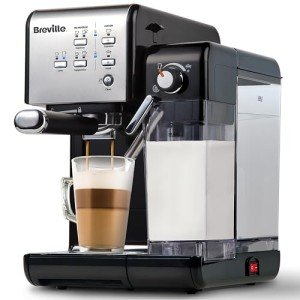10 Life Lessons We Can Learn From Home Espresso Machines
The Rise of Home Espresso Machines: A Comprehensive Guide
As coffee fans continue to seek fresh and flavorful brews in the house, the appeal of home espresso machines has surged over the last few years. No longer simply the domain of coffee shops and coffee stores, these machines empower individuals to craft barista-quality espresso drinks from the comfort of their kitchens. Pump Espresso Machines will explore the numerous kinds of home espresso machines, their features, and considerations for selecting the right one. In addition, it will provide a selection of FAQs to assist potential purchasers make notified choices.
Kinds Of Home Espresso Machines
Home espresso machines can be classified into numerous categories based on their mechanisms and user-friendliness. Each type has its distinct features, pros, and cons.
Type
Description
Pros
Cons
Manual Espresso Machines
Needs the user to manually manage the developing process, including techniques like pulling a lever to produce pressure.
- Complete control over brewing process
- Compact design
- Requires skill and practice
- Time-consuming
Semi-Automatic Machines
Machine automates water circulation and pressure, but the user still manages the dosing and duration of the brewing procedure.
- Balance of automation and control
- Versatile
- Learning curve for improving methods
Totally Automatic Machines
Automates the entire brewing process, from grinding to brewing, typically with programmable settings for customized beverages.
- Extremely user-friendly
- Quick and practical
- Less control over the brewing procedure
- Higher price point
Pill or Pod Machines
Utilizes pre-packaged espresso pills or pods to develop coffee quickly and easily.
- Extremely easy to use
- Minimal clean-up
- Limited taste range
- More costly per cup than ground coffee
Super-Automatic Machines
Integrates features of completely automatic machines with built-in mills, permitting users to brew whole bean espresso and milk-based drinks with one touch.
- All-in-one convenience
- Ideal for milk-based beverages
- Often the most costly
- Can be bulky
Features to Consider
When picking a home espresso machine, potential purchasers should think about the following features to ensure they select a machine that meets their requirements:
Grinder Type:
- Built-in grinders can offer fresher premises but might require more upkeep.
- Separate grinders permit for more customization of grind size.
Pressure:
- Look for machines that produce a minimum of nine bars of pressure, which is ideal for brewing espresso.
Water Temperature Control:
- Machines with adjustable temperature level settings enable much better extraction of taste from beans.
Milk Frothing Options:
- Consider whether you want a manual steam wand for frothing or an automatic milk frother for convenience.
Ease of Cleaning:
- Machines with detachable parts and self-cleaning functions substantially reduce clean-up time.
Size and Design:
- Ensure the machine fits easily in your kitchen and lines up with your aesthetic choices.
Budget:
- Set a budget before beginning your search, as rates can vary considerably from affordable designs to high-end machines.
Advantages of Home Espresso Machines
Owning a home espresso machine uses various advantages:
- Cost-Effective: Over time, developing espresso in the house can conserve coffee lovers cash compared to regular café gos to.
- Modification: Users can explore different beans, grind sizes, and developing methods to find their best cup.
- Convenience: The capability to brew espresso whenever eliminates the need to head out to a café, specifically useful throughout late nights or early mornings.
- Quality Control: With a home machine, people have total control over the quality of ingredients and developing procedures.
Disadvantages of Home Espresso Machines
Nevertheless, there are some drawbacks to think about:
- Initial Investment: High-quality espresso machines can be expensive, needing a substantial upfront investment.
- Learning Curve: Mastering the art of espresso developing can require time and practice, which may be intimidating for newbies.
- Maintenance: Like any device, espresso machines need regular cleansing and upkeep to make sure optimal performance.
Frequently asked questions
1. What is the very best type of home espresso machine for novices?
Response: For novices, a semi-automatic machine is typically recommended as it provides a balance between control and automation, allowing you to learn the essentials without frustrating intricacy.
2. Just how much should I invest on a home espresso machine?
Answer: Entry-level machines can begin around ₤ 100 to ₤ 300, while higher-end designs can vary from ₤ 500 to over ₤ 2000. It's important to set a budget based on your expected usage and preferred functions.
3. Do I need a separate grinder?
Answer: While some espresso machines come with integrated grinders, investing in a different grinder permits higher personalization and makes sure better quality grounds.
4. How often should I clean my espresso machine?
Answer: Cleaning frequency can differ by machine type, however it's normally suggested to clean up the machine after each use and perform deep cleanings weekly or regular monthly, depending upon usage.
5. Can I make milk-based drinks with any espresso machine?
Response: Not all machines feature milk frothing capabilities. If link take pleasure in drinks like lattes or cappuccinos, search for a machine with a steam wand or automatic frother.
Home espresso machines are changing the way coffee aficionados enjoy their cherished brews. With numerous types and advanced features available in the market, there is something for everybody. Whether it's the joy of developing distinct recipes or merely savoring the perfect shot of espresso, buying a home espresso machine can improve both the coffee-drinking experience and the quality of life for coffee lovers all over. As with any financial investment, it is essential to weigh the advantages versus the prospective drawbacks and select a machine that seamlessly fits both your lifestyle and preferences.
